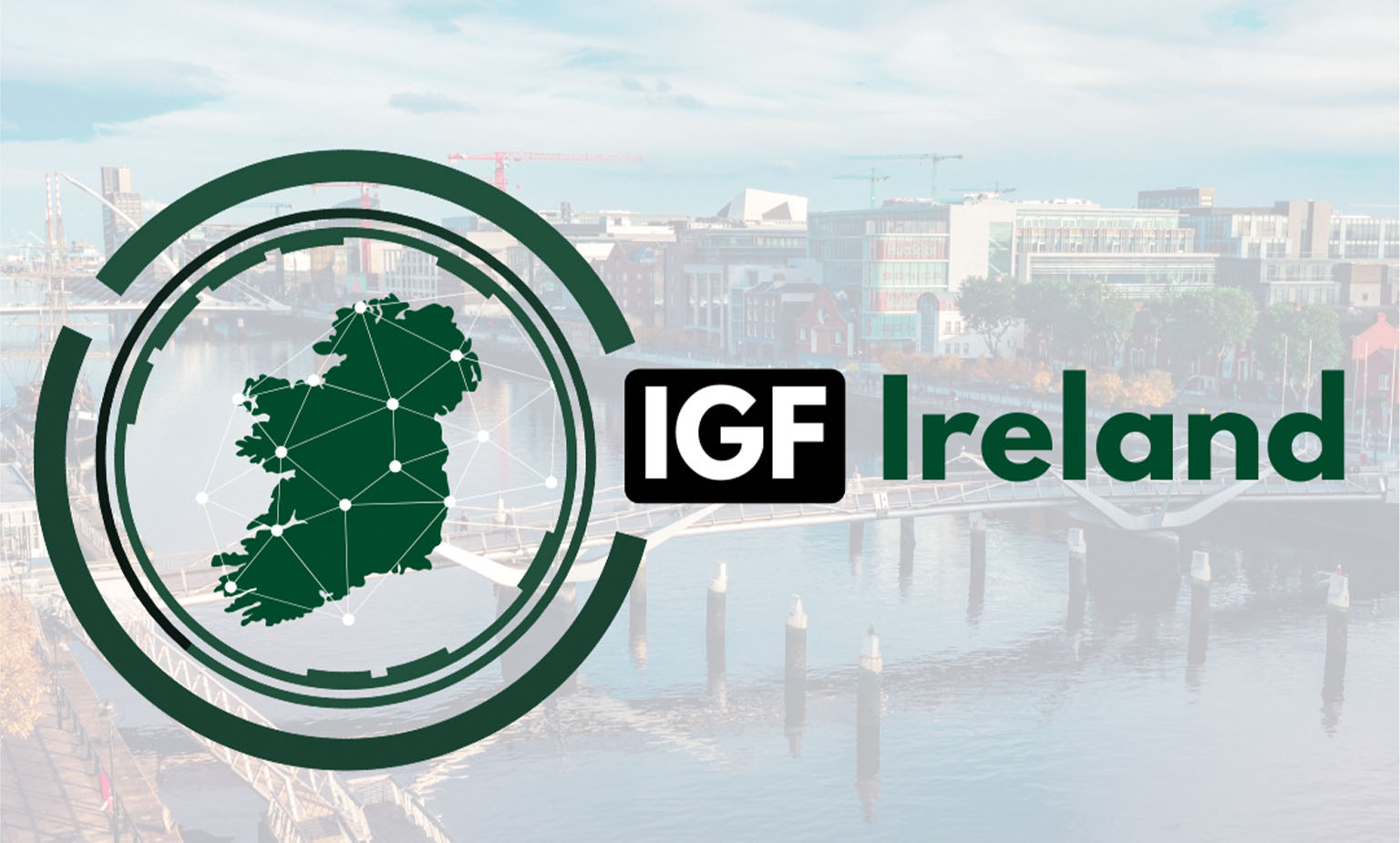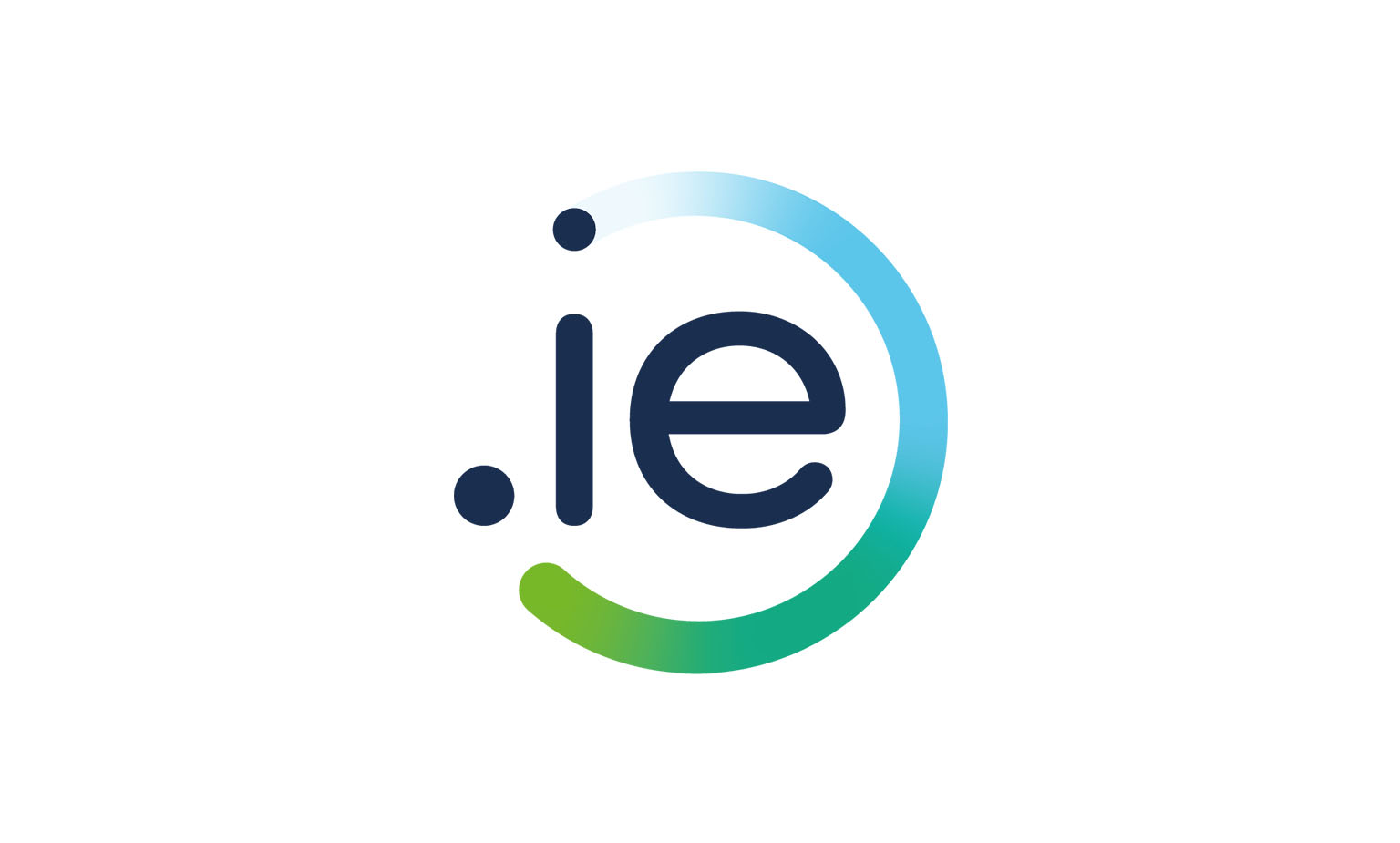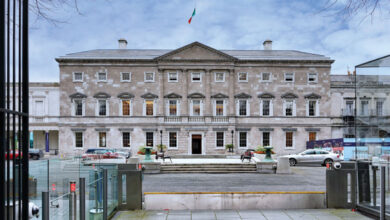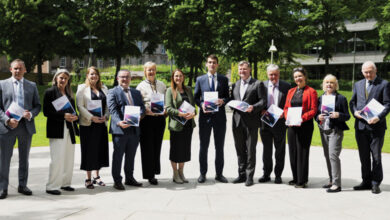Ireland joins the global conversation: The inaugural IGF Ireland

On Thursday 22 May 2025, Ireland will host its inaugural Internet Governance Forum at DogPatch Labs in Dublin. This landmark event is being hosted by .ie, and coordinated through a multi-stakeholder organising team from a wide range of sectors and stakeholders that are passionate about internet governance.
What is the IGF?
The Internet Governance Forum (IGF), formally established by the United Nations in 2006, is a global initiative to promote open policy discussions that shape the future of the internet. The IGF thrives on collaboration, and it creates a space where governments, businesses, civil society, and the technical community can share ideas and discourse on internet governance.
It is deeply committed to the safe, secure, accountable and constructive use of digital technology and to defending human rights in the digital world. It works with a wide range of groups including national ministries of defence to cybersecurity organisations, humanitarian aid organisations, the World Economic Forum, the Council of Europe, the US Department of Commerce, the OECD and the World Intellectual Property Organisation and many others. It is global in nature, with participants from Europe, the Middle East, China and Africa.
With topics such as data privacy and artificial intelligence to digital inclusion, sustainability, and cybersecurity, the IGF covers a wide spectrum of topics that affect everyone. By encouraging input from diverse perspectives, it fosters discussions that are open, inclusive, and multi-stakeholder.
The IGF is global in scope, but many internet-related issues differ from one country to another. National and Regional IGFs provide a platform for local stakeholders to explore these increasingly complex challenges, and have their views contribute to the larger global dialogue.
IGF Ireland: Coming soon
Besides the Global IGF, many nations or regions host their own local IGF events to bring together the local internet community and discuss local internet policy issues. Ireland is joining the global conversation and hosting its very own inaugural IGF event. This has never been done before, even though Ireland has a vital and significant role to play in internet governance.
Events like the IGF Ireland also do more than spark conversation; they build connections and drive solutions. By bringing together stakeholders from government, industry, academia, and civil society, the forum could help shape Ireland’s digital future. It is also an opportunity for Ireland to contribute its insights and experiences to the global stage. Hosting the IGF Ireland presents a chance to position Ireland as a leader in navigating the complexities of internet governance, and to have open and innovative discussions on internet policy issues facing Ireland.

Why host IGF Ireland?
Ireland is no stranger to the transformative power of technology. Over the past two decades, it has established itself as a hub for global tech companies while fostering a thriving local tech ecosystem. But with opportunity comes responsibility. As the internet shapes more of our daily lives, Ireland must grapple with questions about digital ethics, security, access, and governance.
The decision to launch IGF Ireland reflects a growing recognition of the need for localised conversations about these global challenges. While the IGF’s annual global meeting addresses issues at a macro level, national and regional IGFs focus on specific contexts. Ireland’s forum will create a platform to discuss its unique priorities and contribute to global efforts.
Who is involved?
The IGF Ireland is being coordinated this year by .ie, the trusted national registry for over 330,000 .ie domain names. The multi-stakeholder organising team includes representatives from government, academia, civil society, the private sector, and the technical community. There are representatives that specialise in areas ranging from data protection and online safety, to cyber security.
The keynote speaker for the event is confirmed to be Johnny Ryan, the Director of Enforce from the Irish Council of Civil Liberties. Ryan will be talking about Ireland’s future in digital and internet governance. A wide range of panellists are also set to appear from areas including tech, academia, civil society, and government.
The agenda
The full agenda can be found at www.igf-ireland.ie and was created with the input from the Organising Team and from input from a public consultation.
Panels will cover important topics including:
- Global processes affecting internet governance
- Creating ethical, forward-thinking policies
- The impacts of geo-politics on internet governance
- A vision for a sustainable internet; and,
- How to achieve ethical AI governance.
Save the date!
As the countdown begins to IGF Ireland, there is a palpable sense of anticipation. This is more than just an event; it is a step forward in how Ireland engages with the most pressing digital issues of our time. IGF Ireland will take place on Thursday 22 May 2025 at DogPatch Labs, Dublin.
The success of a national IGF depends on the community’s participation. This means involving representatives from across society, including policymakers, business leaders, academic researchers, community organisations, and the general public. The IGF Ireland offers an opportunity for these groups to connect, share experiences, and contribute to shaping the country’s digital future.
Whether you’re a policymaker, a business leader, a researcher, or simply someone passionate about the internet, this is your opportunity to take part in the discussion! Keep an eye on www.igf-ireland.ie for updates and details on how to get involved.

W: www.igf-ireland.ie





